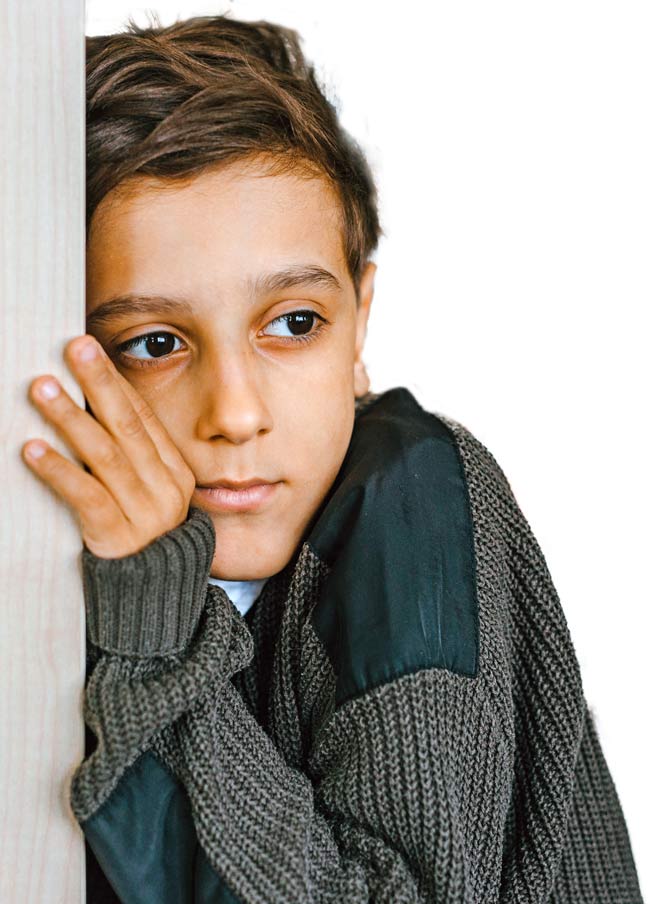
The Conversation with the Child
With respect and appreciation
Age-related developmental behavior plays an important role in the development of relationship and attachment
disorders in the child as well as his psychological and physical reactions to a disturbed family situation.
Small children up to 3 years of age react particularly emotionally to tensions and changes in their environment.
The child cannot mentally grasp the events. They often react with sleeping and eating disorders and with
emotional instability.
Children between the ages of 3 and 5 are often in the self-centered phase and very afraid of being abandoned.
When parents separate, conduct disorders, emotional lability, anxiety, guilt, and eating disorders can occur.
6- to 10-year-old children have a subjective point of view and are now able to distinguish their own perspective
from that of others. At this age, feelings of guilt increase. The breakup of the family can lead to conflicts
of loyalty. Separation denial, grief, depression, withdrawal, and deterioration in school performance are
ommon reactions at this age. It is not uncommon for children to feel responsible for their parents.
The 11 to 15 year olds' own perspective can be captured and coordinated at the same time as the perspective of
other people. The most common behaviors are delays in the age-appropriate detachment process, identity problems,
self-esteem issues and social shame.
Establish Communication
I talk to the child personally and treat him or her with respect and appreciation. Good empathy, my own experience with children and many years of practical experience in children's and teenagers' work help me to establish good communication and trust with the child.
The ability to non-verbal communication and its interpretation as well as general life experience are also important
elements of my successful work with children. The correct assessment of the social environment and the complexity of
the family's relationships help me to assess the child's situation professionally.
Loving contact with the child and structured work, if necessary also courageous intervention, are no contradictions.
My primary goal is to assess and evaluate the child's situation correctly and to find the best solution for her or
him and to support the family court in reaching an appropriate judgement. In doing so, the child must be helped to
establish new, reliable relationships in life that offer him or her security and safety.

